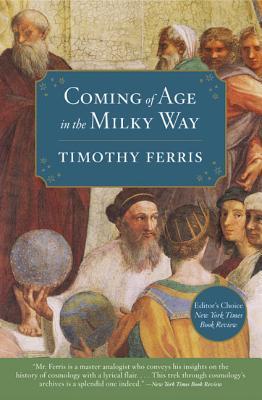
Cosmos
Book Description
A breathtaking journey through time and space awaits. 'Cosmos' unveils the mysteries of the universe, exploring the origins of life, the evolution of civilizations, and the fragile connections that bind us to the cosmos. Carl Sagan paints an awe-inspiring picture of the stars, revealing the science behind our existence and humanity’s quest for knowledge. Each chapter plunges deeper into the wonders of the cosmos, blending scientific inquiry with poetic insight. With every page, the vastness of space feels within reach. Are we merely observers, or is the universe calling us to understand our place within it?
Quick Book Summary
Cosmos by Carl Sagan is a masterful exploration of the universe, blending scientific discovery with a sense of wonder about humanity’s place in the cosmos. Sagan guides readers from the origins of the universe to the emergence of life and the evolution of intelligence on Earth, examining the delicate interconnections that shape existence. He reflects on the achievements and limitations of science, the power of collective human curiosity, and the responsibilities that come with our expanding knowledge. The book eloquently communicates the beauty, complexity, and vast scale of the cosmos, inspiring readers to contemplate not only astronomical questions but also philosophical and ethical considerations about civilization’s future. Cosmos ultimately serves as both an introduction to the universe and a call for stewardship of our planet and continued exploration.
Summary of Key Ideas
Table of Contents
The Evolution of the Universe and Life
Cosmos begins with an evocative depiction of the universe’s vastness and age, tracing the 15-billion-year evolution from the Big Bang to the formation of galaxies, stars, and planets. Sagan describes the fundamental principles of physics and chemistry that govern the cosmos and sets the stage for the emergence of life. Through accessible explanations, he takes readers on a journey through cosmic history, emphasizing the unbroken thread from ancient stardust to modern human beings. This cosmic perspective reveals not only the grandeur of the universe but the rarity and preciousness of life.
Humanity's Quest for Knowledge
A central theme is humanity’s unending quest to understand the cosmos. Sagan recounts pivotal moments in the story of science: the paradigm shifts brought by Copernicus, Galileo, and Newton, and the rise of the scientific method as a tool for discovery. He celebrates the contributions of different civilizations, from the ancient Greeks and Egyptians to the scholars of the Islamic Golden Age. Sagan emphasizes how collaboration and skepticism have propelled science, while warning of the dangers of ignorance, superstition, and dogmatism that have, at times, stifled progress.
Interconnectedness of All Things
Sagan explores the intricate web of connections between all living things and the universe at large, illustrating how our very existence depends on cosmic events. Chemical elements forged in stars became the building blocks of life on Earth. Sagan discusses the evolution of intelligence, the development of civilization, and the ways in which culture, science, and art intertwine. He also reflects on the possibility of extraterrestrial life and how the search for it expands our perspective and tests our assumptions about life’s uniqueness.
The Responsibility of Technological Civilization
Another significant thread in Cosmos is the responsibility that comes with technological advancement. Sagan warns of the fragility of civilization, urging careful stewardship of Earth in an era of nuclear weapons and environmental threats. He calls for humility and wisdom, stressing that our shared fate depends on rational cooperation, science education, and safeguarding our world for future generations. Sagan also discusses the potential of space exploration to promote unity and broaden human understanding.
The Wonder and Beauty of the Cosmos
Amid scientific rigor, Cosmos retains a sense of awe and gratitude for existence. Sagan’s poetic language evokes the beauty of the cosmos and the thrill of discovery. He invites readers to marvel at nature, appreciate the achievements of human curiosity, and recognize the deep kinship that links all things. In closing, Sagan leaves readers with a vision of hope—an encouragement to continue exploring, learning, and cherishing our small yet significant place in the vast expanse of the universe.
Download This Summary
Get a free PDF of this summary instantly — no email required.


![The Whole Shebang: A State-of-the-Universe[s] Report cover](https://images-na.ssl-images-amazon.com/images/S/compressed.photo.goodreads.com/books/1347278841i/310330.jpg)


